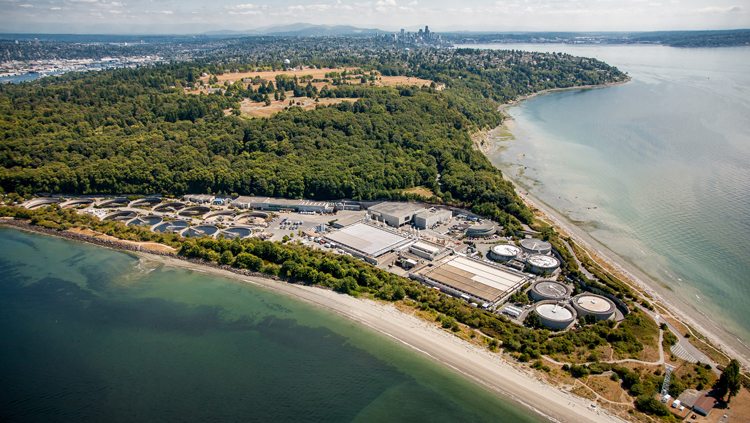Investing in clean water
King County's wastewater utility is entirely funded by the ratepayers who invest in our programs and services through their monthly rate and capacity charge bills. We take seriously our obligation to provide the highest levels of service and accountability to our ratepayers.

Wastewater infrastructure is crucial for protecting water quality and economic vitality, and supporting jobs and growth while maintaining our region’s natural assets like beaches, lakes and rivers.
Bond ratings
Standard & Poor's and Moody’s investor services are leading global financial firms that rate corporate stocks and municipal bonds according to risk profiles.
- King County Sewer Enterprise parity sewer revenue bonds ratings of Aa1 from Moody’s Investors Services (Moody’s) and AA+ from Standard and Poor’s (S&P) Global Ratings were affirmed in June 2023. Its junior lien sewer revenue bonds ratings of Aa2 from Moody’s and AA from S&P Global Ratings were also affirmed in June 2023.
- King County Sewer Enterprise limited tax general obligation bonds (LTGO) of Aaa from Moody’s and AAA from S&P Global Ratings were affirmed in March 2023.
These continued favorable credit ratings lower the cost of borrowing by reducing interest payments to bondholders, which, in turn, reduces impacts to the rate.
Financial statements
The wastewater utility undergoes an annual audit to insure that its annual financial results are fairly stated and that all covenants with the utility’s bondholders have been met. View audited financial statements.
Biennial budget (2023-2024)
- Operating budget: $391.8 million
- Capital budget: $984 million (including a disappropriation of $65M of completed/legacy projects)
How the WTD Capital Improvement Program (CIP) is funded
The WTD CIP is funded through a combination of debt (long-term revenue bonds and state loans) and cash transfers from the operating fund that include capacity charge revenues.
The operating fund derives the majority of its revenue from monthly charges to sewer customers that are collected by WTD's component agencies.
Transfers from the operating fund to the capital program are based on the financial practice of cash-funding 40 percent of the capital program. This practice results in a debt service coverage ratio in recent years of approximately 1.50 on all debt payments, so that operating revenues, after payment of operating expenses and debt service, provide net cash flow equal to 50 percent of the total debt service expense. This buffer reduces risk to bondholders, lowers WTD’s borrowing costs and is used to pay for the capital program.

 Translate
Translate